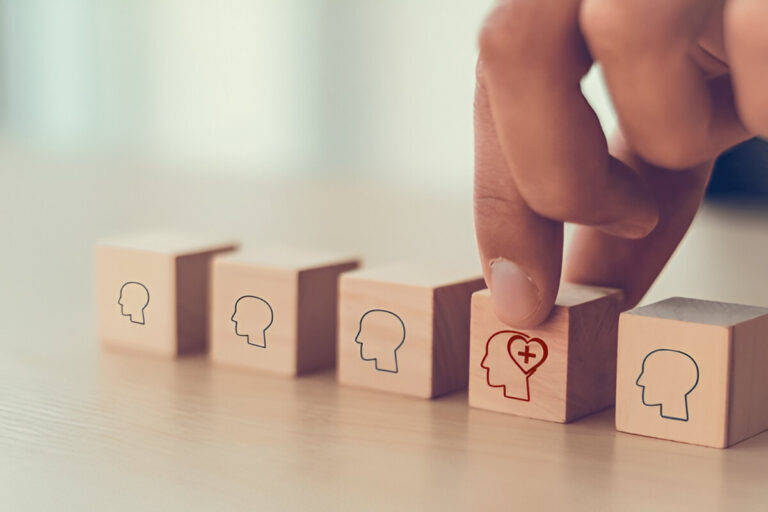There are days when being a robot would be simpler.
They are clever, very strong and don’t have to worry about human emotions. Yet, robots are not able to experience the best and worst of life, including the mess. We should not ignore our emotions, but learn to live with them.
We need to understand how emotions and feelings function in order to do this.
For many years, scientists and philosophers have tried to figure out how the mind works. Because of neuroscience and advanced psychology, we have made significant progress.
We have learned that feelings and emotions are not the same, and they impact our actions differently. Learning about them can help your relationships and your mental and emotional well-being.
Let’s look at how to understand emotions and feelings and some ways to manage them.
Table of Contents
ToggleHow are feelings and emotions different from one another?
Many people mix up feelings and emotions, and it’s not hard to see why. Emotions are what allow feelings to exist, but emotions can exist without feelings. Let’s take a closer look at them.
What do we mean by emotions?
All humans, regardless of culture, are naturally prone to emotions. According to neuroscientist Antonio Damasio, they are born in the amygdala limbic system, one of the brain’s cortices that decides how humans react to stimuli. Because of this brain activity, we behave differently, feel emotions, and sometimes experience physical changes.
If we meet a dangerous animal in nature, the only feeling that makes sense is fear. It is a basic emotion that comes from our genes. Fear causes our heart to beat faster, warns us that something is wrong and urges us to respond.
Whether we flee or fight, fear is the reason we take action.
All humans experience eight of these basic, positive or negative emotions. There are many words for them, but here are the main points of our emotional wheel:
- Joy appears when we have a positive and exciting experience
- Sadness happens when we lose something or someone.
- When we are betrayed, anger encourages us to act.
- Fear is the way we react to danger.
- We feel happiest when we are safe and looked after.
- Disgust is what we feel when something is unpleasant.
- Trust means we admire and accept other people.
- Anticipation can be anything from being interested to being curious and aware.
A few therapists use the emotion wheel to help clients identify their emotions. However, there are several versions; the basic one lists eight main emotions.
What is the reason for our emotions?
Most of the time, our feelings guide us to decide what is significant or dangerous for us. If we didn’t feel emotions, our social skills would be poor, our instincts would be weak and we wouldn’t know how to behave in tough situations.
Managing Feelings We Are Not Aware Of
Emotions are always there, even if we don’t notice them. If emotions are not recognized, they can cause toxic actions and mental health problems, so psychotherapists help their clients identify their feelings so they can overcome the negative cycles and face those emotions directly.
Knowing your emotions is important for doing well in both your personal and work life. This will improve your emotional intelligence and your decision-making, and help you find emotional balance.
A BetterUp coach can guide you in learning how to stay steady, express your feelings and strengthen your mental health.
What do we mean by feelings?
While feelings are connected to basic emotions, they serve a different purpose for us. Here’s how they both play a role in shaping what you go through.
1. Unlike emotions, feelings are more focused on what they mean.
The six universal emotions are experienced differently by people. As an example, anger can be felt as aggression, vengefulness, or resentfulness. They are all ways of expressing the same basic feeling. They describe the feeling more clearly than just saying, “I’m angry.”
2. Our feelings are the result of learning how to react to emotions.
Even though joy and fear are common to everyone, each person will feel them differently. What we experience is influenced by the mental associations we have learned and those we are not aware of.
Let’s imagine that you are afraid of spiders. At one time, because of something unpleasant, you realized you should react to spiders with fear.
But there’s something else to consider. Horror is only one of the many ways we can feel fear. There are different methods for dealing with that emotion. Even if you both are afraid of the spider, someone might still feel excited, so you’ll react differently.
3. Feelings are our awareness of emotions, which may be unconscious, often caused by trauma
Feelings may show up as thoughts we are aware of or as feelings we are not aware of.
Some people grow to resent their parents, but this could be because of many different feelings; as a child, you might have been afraid of your parents or angry about their divorce.
We may not notice these traumatic emotions for a long time. If we don’t recognize them, our feelings may grow and harm our mental health.
If you feel this applies to you, we suggest talking to a therapist or mental health professional to deal with your experiences.
4. The environment you are in can change your mood.
How we react to emotions is influenced by our family, friends, faith, and culture.
As a result, men in such groups may act out their emotions in ways that are not good for them. In these situations, they are frequently criticized for showing emotions related to sadness (e.g. “boys don’t cry!” Why don’t you act like a man?”
It leads men to handle their feelings by becoming angry, using drugs or alcohol, or developing eating disorders. They are not good ways to express a normal emotion.
Even religion and culture can give way to how we handle death and bereavement. In the United States, many people follow Catholic traditions by having a wake, funeral, memorial and post-funeral service. Most of the time, it is a solemn occasion.
In South Africa, though, there are some differences in how mourners behave. They feel sad and grieve, but soon switch to an “after tears” celebration. These are days of comforting surviving relatives and of remembering the deceased with affection.
Both cultures feel grief and sadness, but respond to them differently.
How you feel, what you thi,nk and your emotions
Exploring your inner self can sometimes feel too much. It’s not always clear how your feelings and emotions affect your actions.
If not controlled, they may cause significant problems. Substance abuse disorders, anxiety, and depression are just some of the mental health challenges people with unacknowledged emotions and traumas can develop. They could also handle their emotions by hurting those around them.
At work, it could be someone stealing credit for another person’s achievements, but at home it might look like regular, unpredictable crying.
If your actions are causing you or others pain, you may want to talk to a professional.
4 Ways to Manage Your Feelings
If you don’t have access to a therapist, you can try several things at home to help with your feelings. You can try these four things:
1. Recognize your feelings and don’t try to hide them.
Feelings are a normal aspect of living. If you try to ignore them, it will only cause issues later on. They can lead to problems with your physical health, for example:
- Anxiety
- Depression
- Sleep deprivation
- Pain and achy muscles
- Stress
- Substance abuse
Try to identify the emotion you’re experiencing. At times, that’s all you need to do to weaken their influence. If you know how you feel, you can take steps to reduce those feelings.
2. Let yourself feel what you feel.
Being accepting and acknowledging are not the same. It’s easy to identify your emotions, but it’s harder to let them be part of you. If you realize emotions are always present, you can learn to be at ease with them.
3. Breathe
When we feel very strong emotions, our minds seem to wander everywhere. Deep and slow breathing helps us get back to the present.
Some of this is related to biological factors. Slow breathing lets your brain understand that you are safe. How could you possibly be? If you were, you’d probably be fleeing, feeling excited and short of breath. Breathing is a sign that we are, in fact, safe.
Paying attention to your breathing can help you focus on something else. It helps you become more aware of your body instead of your feelings.
4. Learn the art of effectiveself-expressionn
We need to let our emotions out, in some way. You need to find healthy methods to make that happen. If you’re sad, crying is fine and if you’re angry, you can scream into a pillow, but make sure you don’t take it out on others.
The main point
Trying to hide your emotions is much like trying to swim against the current. If you do this, you will quickly get tired, feel out of breath, and risk drowning. It’s simpler to just go along with what’s happening. Experience all your emotions, whether they are positive or negative.
A peak can only be understood when there is a valley, and understanding why feelings matter will help you accept them.
It can be tough to control our emotions. For this reason, you should start learning how to cope now, before your feelings get too much for you.
BetterUp is here to help. During confidential sessions with our coaches, you will learn about your emotions, set healthy boundaries, and find out why intentional self-care is important. There’s no way to avoid emotions, and they make life more interesting.
FAQs.
What is the distinction between emotions and feelings?
All humans feel emotions, which are basic responses that start in the amygdala of the brain. Feelings, however, are personal ways of understanding emotions, based on what a person has gone through, where they live, and their culture.
Why do emotions play a role in how humans behave?
Emotions guide our actions, help us deal with people, and help us decide what is important or dangerous. They influence our instincts, choices, and relationships, so they are necessary for both personal and social life.
What happens to mental health when emotions are suppressed?
If you don’t express your emotions, you might experience anxiety, depression, trouble sleeping, stress, and even physical pain. If we don’t recognize our emotions, they can appear as harmful behaviors or mental health issues.
Is it possible for culture or environment to affect our feelings?
Yes, our feelings are greatly affected by family, our social groups, religion, and culture. For example, grief may be processed differently, or sadness or anger may be expressed differently, in different cultures.
What are a few good methods for dealing with strong emotions?
You can handle your emotions healthily by recognizing them, giving them a name, accepting how you feel, using deep breathing, and sharing your thoughts in a journal, with someone close, or by exercising.





